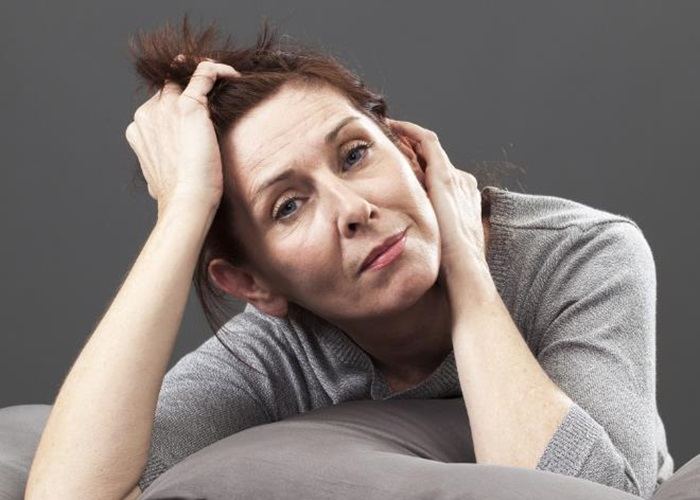Irregular Periods
One of the earliest and most noticeable signs of approaching menopause is a change in the menstrual cycle. Periods may become irregular, with the length between cycles varying more than usual. For example, a woman who previously had a regular 28 – day cycle might notice that her cycles are now 24 days one month and 32 days the next. This irregularity occurs because the ovaries are beginning to produce less estrogen and progesterone, the hormones that regulate the menstrual cycle. As the hormonal balance shifts, the lining of the uterus may not build up and shed in the same predictable pattern.
Another aspect of irregular periods is the flow. The amount of bleeding during menstruation can change. Some women experience lighter periods, while others may have heavier or more prolonged bleeding. These changes can be gradual and may occur over several months or even years.
Skipping Periods
As menopause gets closer, women may start to skip periods altogether. This can be a confusing and sometimes concerning sign. Skipping a period once in a while may not necessarily mean menopause is imminent, especially if there are other factors like stress or changes in diet or exercise. However, if periods are skipped for three months or more, it’s a stronger indication that the body is transitioning towards menopause. The ovaries are gradually reducing their production of eggs and the associated hormonal changes are leading to the cessation of the monthly menstrual cycle.
Vasomotor Symptoms
Hot Flashes
Hot flashes are a hallmark symptom of menopause. A hot flash is a sudden feeling of intense heat, usually in the upper body and face. The skin may become flushed, and a woman may break out in a sweat. Hot flashes can vary in intensity and frequency. Some women experience mild, infrequent hot flashes, while others may have several severe ones a day. They can occur at any time, including during the day or at night, disrupting sleep. The exact cause of hot flashes is related to the hormonal changes in the body. As estrogen levels decline, the body’s thermostat, located in the hypothalamus, becomes more sensitive, leading to these sudden temperature fluctuations.
Night Sweats are a similar phenomenon that occurs during sleep. A woman may wake up drenched in sweat, which can lead to discomfort and disrupted sleep patterns. Night sweats can contribute to fatigue and mood changes due to the lack of restful sleep.
Changes in Mood and Sleep
Mood Swings
Hormonal fluctuations during menopause can have a significant impact on mood. Women may experience mood swings, ranging from mild irritability to more severe bouts of depression or anxiety. These mood changes can be related to the hormonal imbalance as well as the physical discomforts such as hot flashes and disrupted sleep. For example, a woman who is normally calm and even – tempered may find herself getting easily frustrated or tearful for no apparent reason. The decrease in estrogen can also affect neurotransmitters in the brain, which play a role in regulating mood.
Sleep Disturbances
In addition to night sweats, other factors contribute to sleep problems during menopause. The hormonal changes can disrupt the normal sleep – wake cycle. Women may have difficulty falling asleep, staying asleep, or may experience more restless sleep. Lack of quality sleep can then lead to daytime fatigue, which further exacerbates mood swings and can affect overall quality of life. Some women may also experience vivid dreams or nightmares, which can be related to the hormonal and emotional upheaval during this period.
Genitourinary Changes
Vaginal Dryness
As estrogen levels drop, the vaginal tissues become thinner, drier, and less elastic. This can lead to vaginal dryness, which can cause discomfort or pain during sexual intercourse. Women may also notice itching, burning, or a feeling of soreness in the vaginal area. The lack of natural lubrication can make sexual activity less enjoyable and may even lead to a decreased libido. Over time, the vaginal dryness can also increase the risk of vaginal infections due to changes in the vaginal pH and the normal balance of bacteria.
Urinary Changes
Some women may experience urinary symptoms such as increased frequency of urination, urgency (a sudden, strong need to urinate), or even urinary incontinence. These changes are related to the weakening of the pelvic floor muscles and the thinning of the urethral lining, which can be affected by the hormonal changes. The bladder may also become more sensitive, leading to a more frequent urge to empty it.
Conclusion
Going through menopause is a complex process with a wide range of symptoms. The presence of irregular periods, hot flashes, mood swings, sleep disturbances, vaginal dryness, and urinary changes are all signs that a woman may be in the menopausal transition. However, it’s important to note that these symptoms can also be caused by other factors. If a woman suspects she is going through menopause or is concerned about any of these symptoms, it’s advisable to consult a healthcare provider. They can perform tests, provide advice on managing symptoms, and offer support during this significant life change.
Related topics
- What Age Does The Female Menopause Start?
- Is There An Over The Counter Test For Menopause?
- How To Help Menopause Bloating?


